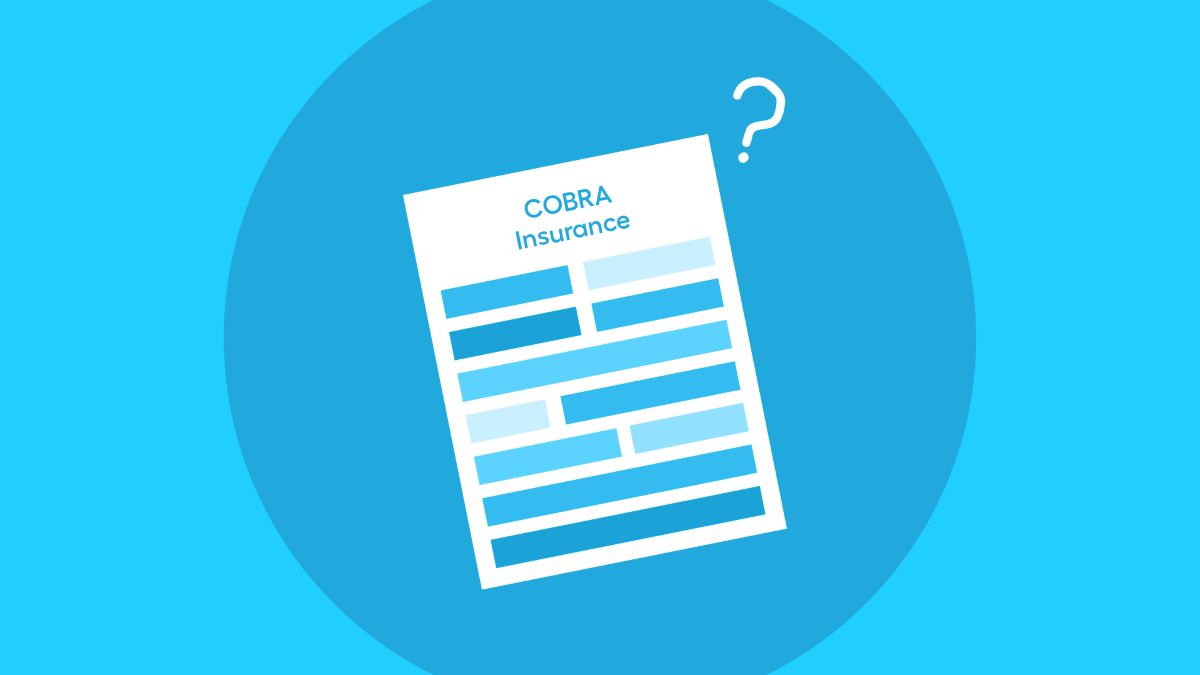

Finance
How Does Cobra Insurance Work In California?
Published: November 15, 2023
Learn how Cobra insurance works in California and how it can help you with your financial needs. Find out everything you need to know about Cobra insurance in California.
(Many of the links in this article redirect to a specific reviewed product. Your purchase of these products through affiliate links helps to generate commission for LiveWell, at no extra cost. Learn more)
Table of Contents
Introduction
Welcome to the world of Cobra insurance in California! If you’ve recently experienced a job loss or a reduction in work hours, you may be wondering how you can continue to access affordable healthcare coverage. That’s where Cobra insurance comes in.
Cobra insurance, short for the Consolidated Omnibus Budget Reconciliation Act, is a federal law that allows employees and their families to continue their employer-sponsored health insurance coverage for a limited period of time after experiencing a qualifying event, such as job loss, divorce, or the death of a covered employee. In California, Cobra insurance is particularly important due to the state’s high cost of living and the prevalence of employer-sponsored healthcare plans.
This article will guide you through the ins and outs of Cobra insurance in California, helping you navigate the complexities of eligibility, coverage, costs, and enrollment. Whether you’re currently facing a life-changing event or simply want to be informed about your options, understanding how Cobra insurance works in California is crucial.
Stay with us as we delve into the details of Cobra insurance, including who is eligible, what coverage it provides, how much it costs, how long it lasts, and alternative options available for healthcare coverage. By the end of this article, you’ll have a comprehensive understanding of Cobra insurance in California and be prepared to make informed decisions regarding your healthcare needs.
What is Cobra Insurance?
Cobra insurance, also known as the Consolidated Omnibus Budget Reconciliation Act, is a federal law that allows individuals and their families to maintain their employer-sponsored health insurance coverage after experiencing a qualifying event that would typically result in the loss of coverage.
Under Cobra insurance, eligible individuals can continue to receive the same healthcare benefits they had while employed, but they are now responsible for the full cost of the coverage. This means that individuals pay both their portion of the premium as well as the portion previously covered by their employer. While the cost may be higher than what you paid while employed, Cobra insurance ensures that you maintain continuous coverage and have access to the same healthcare providers and services.
In California, Cobra insurance plays a significant role due to the state’s high cost of living and the prevalence of employer-sponsored healthcare plans. It provides a safety net for those experiencing a job loss or reduction in work hours, allowing them to bridge the gap and maintain their health insurance coverage without interruption.
It’s important to note that not all employers are required to offer Cobra insurance. This typically applies to companies with 20 or more employees, although some states may have additional regulations. However, even if your employer is not required to offer Cobra insurance, they may still choose to do so as a benefit for their employees.
Now that you understand the basics of Cobra insurance, let’s explore the eligibility criteria in California and who can benefit from this coverage option.
Eligibility for Cobra Insurance in California
In California, eligibility for Cobra insurance is determined by several factors. To qualify for Cobra coverage, you must meet the following criteria:
- Qualifying Event: You must have experienced a qualifying event that would result in the loss of your employer-sponsored health insurance coverage. Common qualifying events include job loss, a reduction in work hours, divorce or legal separation, the death of a covered employee, or Medicare entitlement.
- Employer Size: Your employer must have 20 or more employees for Cobra insurance to be offered. Keep in mind that certain employers may be exempt from offering Cobra coverage, such as government entities and churches.
- Active Coverage: You must have been actively covered under your employer-sponsored health insurance plan at the time of the qualifying event. This means that you cannot sign up for Cobra if you were not enrolled in the plan when the event occurred.
It’s important to note that Cobra coverage is available to both employees and their dependents. This means that if you lose your job, your spouse and children may also be eligible for Cobra insurance to ensure they have continuous healthcare coverage.
Once you determine your eligibility for Cobra insurance, you have a limited window of time to enroll. In California, you generally have 60 days from the date of the qualifying event to elect Cobra coverage. If you fail to enroll within this timeframe, you may lose your right to obtain Cobra coverage.
Next, let’s explore the coverage options available under Cobra insurance in California to understand what benefits you can expect to receive.
Coverage under Cobra Insurance
Cobra insurance in California provides individuals and their dependents with the opportunity to continue their employer-sponsored health insurance coverage on a temporary basis. This means that you will have access to similar benefits and services that were available to you while you were employed.
The coverage under Cobra insurance typically includes:
- Medical Services: This includes doctor visits, specialist consultations, hospital stays, surgeries, and emergency medical care.
- Prescription Drugs: Cobra insurance covers the cost of prescription medications, allowing you to continue receiving necessary prescriptions without interruption.
- Mental Health Services: Mental health services, including therapy and counseling, are typically included in Cobra insurance coverage.
- Preventive Care: Cobra insurance includes coverage for preventive services such as vaccinations, screenings, and annual check-ups.
It’s important to review the specifics of your Cobra insurance plan, as coverage may vary depending on the employer and the specific plan offered. Some employers may offer more comprehensive coverage options, while others may provide more basic coverage. Understanding the details of your plan will help you determine if Cobra insurance meets your healthcare needs.
Additionally, individuals with pre-existing conditions are also protected under Cobra insurance. While some private insurance plans may deny coverage or increase premiums for those with pre-existing conditions, Cobra insurance is required to provide the same coverage and rates as those offered to similarly situated individuals who don’t have pre-existing conditions.
Now that you have an understanding of the coverage provided under Cobra insurance, let’s move on to discussing the costs associated with maintaining this coverage in California.
Cost of Cobra Insurance in California
While Cobra insurance provides continued access to employer-sponsored health insurance coverage, it’s important to note that the cost of this coverage is typically higher compared to what you may have paid while employed. This is because, under Cobra, you are responsible for both the employee and employer portions of the premium.
In California, the cost of Cobra insurance can vary based on several factors, including the specific plan, the number of individuals covered, and the duration of coverage. On average, individuals can expect to pay up to 102% of the plan’s total premium, which includes both the employee and employer portion, plus an additional 2% for administrative fees.
It’s important to keep in mind that the cost of Cobra insurance can be significant, especially for individuals who have recently experienced a job loss or reduction in income. Understanding the financial impact of Cobra insurance is crucial in making informed decisions about your healthcare coverage.
Alternative options may be available to individuals who find the cost of Cobra insurance prohibitive. These alternatives can include purchasing an individual health insurance plan through the California Health Insurance Marketplace or exploring other healthcare assistance programs such as Medicaid or the Children’s Health Insurance Program (CHIP).
Now that we’ve discussed the cost of Cobra insurance, let’s dive into the duration of coverage and how long you can expect to maintain this insurance in California.
Duration of Cobra Insurance Coverage
The duration of Cobra insurance coverage in California is determined by federal law. Under normal circumstances, Cobra coverage can last for a maximum of 18 months. However, there are certain qualifying events that may extend the duration of coverage for specific individuals and their dependents.
For employees who experience a job loss or reduction in work hours, the standard 18-month coverage period applies. This allows you to maintain your health insurance coverage during this transitional period. However, it’s important to be aware of the expiration date of your Cobra coverage to avoid any gaps in healthcare coverage.
In some cases, dependent children may be eligible for an extension of Cobra coverage beyond the 18-month period. This can apply to situations such as when a child turns 26 years old, gets married, or becomes eligible for Medicare.
At the end of the Cobra coverage period, individuals have the option to explore other health insurance options, such as purchasing an individual plan through the California Health Insurance Marketplace or enrolling in a government-sponsored program if eligible.
It’s crucial to proactively plan for the end of Cobra coverage and explore other healthcare options well in advance. This will help ensure a smooth transition and mitigate any gaps in healthcare coverage.
Next, let’s explore the process of enrolling in Cobra insurance in California and how you can navigate the enrollment process effectively.
How to Enroll in Cobra Insurance in California
Enrolling in Cobra insurance in California requires a thorough understanding of the enrollment process to ensure a seamless transition from your employer-sponsored health insurance plan. Here are the steps you need to follow:
- Qualifying Event: You must experience a qualifying event, such as a job loss or reduction in work hours, that would result in a loss of your employer-sponsored health insurance coverage.
- Notification: Once the qualifying event occurs, your employer is required to provide you with a notice regarding your eligibility for Cobra coverage, your rights, and the enrollment process. This notice must be provided within a specific timeframe, usually 14 to 44 days after the event.
- Electing Coverage: Within 60 days of receiving the notice, you must inform your employer in writing that you wish to elect Cobra coverage. It’s essential to meet this deadline as failure to do so may result in the loss of your right to obtain Cobra insurance.
- Payment: After electing Cobra coverage, you will need to make the first premium payment within 45 days of your election. This payment covers the retroactive period from the date of the qualifying event to the start of Cobra coverage.
- Continued Payments: To maintain continuous Cobra coverage, you must make timely premium payments for each subsequent coverage period. These payments are typically due on a monthly basis.
It’s crucial to remember that failing to make premium payments in a timely manner can result in the termination of your Cobra coverage. Therefore, it’s essential to keep track of payment due dates and ensure prompt payment to avoid any interruptions in healthcare coverage.
If you have any questions or need assistance with the Cobra enrollment process, it’s advisable to reach out to your former employer’s human resources department or contact the Cobra administrator responsible for managing the enrollment and payment process.
Now that we’ve explored how to enroll in Cobra insurance, let’s discuss alternative options that may be available to individuals who do not qualify for Cobra or find it financially burdensome.
Alternatives to Cobra Insurance in California
While Cobra insurance provides a valuable option for maintaining healthcare coverage after a qualifying event, it may not be the most suitable or affordable choice for everyone. Luckily, there are alternative options available in California that individuals can explore:
- Individual Health Insurance: You can consider purchasing an individual health insurance plan through the California Health Insurance Marketplace. These plans offer a range of coverage options, allowing you to find a plan that aligns with your healthcare needs and budget. It’s important to note that open enrollment periods and special enrollment periods may apply.
- Government Assistance Programs: If you meet certain income and eligibility criteria, you may qualify for government-sponsored healthcare programs such as Medicaid (known as Medi-Cal in California) or the Children’s Health Insurance Program (CHIP). These programs provide low-cost or free healthcare coverage to eligible individuals and families.
- Spouse’s Employer-Sponsored Plan: If your spouse or partner has access to employer-sponsored health insurance coverage, you may be able to join their plan as a dependent. This can provide a more cost-effective option compared to Cobra insurance.
- Short-Term Health Plans: Short-term health insurance plans are designed to provide temporary coverage for individuals in between jobs or waiting for other coverage to begin. These plans typically offer basic coverage for a limited duration and may not provide the same comprehensive benefits as Cobra insurance or other health insurance plans.
It’s important to thoroughly research and compare the available options to determine which alternative best suits your healthcare needs and financial situation. Consider factors such as coverage, premiums, deductibles, and network providers when making your decision.
Additionally, seeking assistance from a licensed insurance broker or using online tools and resources can help simplify the process of finding the most suitable alternative to Cobra insurance in California.
Now that we’ve explored the various alternatives available, let’s wrap up our discussion on Cobra insurance in California.
Conclusion
Cobra insurance in California serves as a vital safety net for individuals and their families who experience a qualifying event that would result in the loss of employer-sponsored health insurance coverage. It allows for the continuation of healthcare benefits during a transitional period, ensuring access to necessary medical services and peace of mind.
Understanding the eligibility criteria, coverage options, cost considerations, duration of coverage, and enrollment process is essential for navigating Cobra insurance effectively. By knowing your rights and responsibilities, you can make informed decisions about your healthcare coverage and avoid any potential gaps in coverage.
However, Cobra insurance may not always be the most suitable or affordable option for everyone. It’s important to explore alternative options such as individual health insurance plans, government assistance programs, or joining a spouse’s employer-sponsored plan. Carefully evaluating these alternatives and considering factors like cost, coverage, and eligibility criteria will help you find the best solution for your specific needs.
Remember to stay proactive and informed about your healthcare options. Seek guidance from human resources, Cobra administrators, or licensed insurance brokers to ensure that you are making the right decision for both your health and your financial well-being.
Although Cobra insurance can be a temporary solution, it provides a valuable lifeline during times of uncertainty and change. By understanding how Cobra insurance works in California and exploring alternative options, you can secure the healthcare coverage you need and navigate the challenging landscape of healthcare with confidence.














